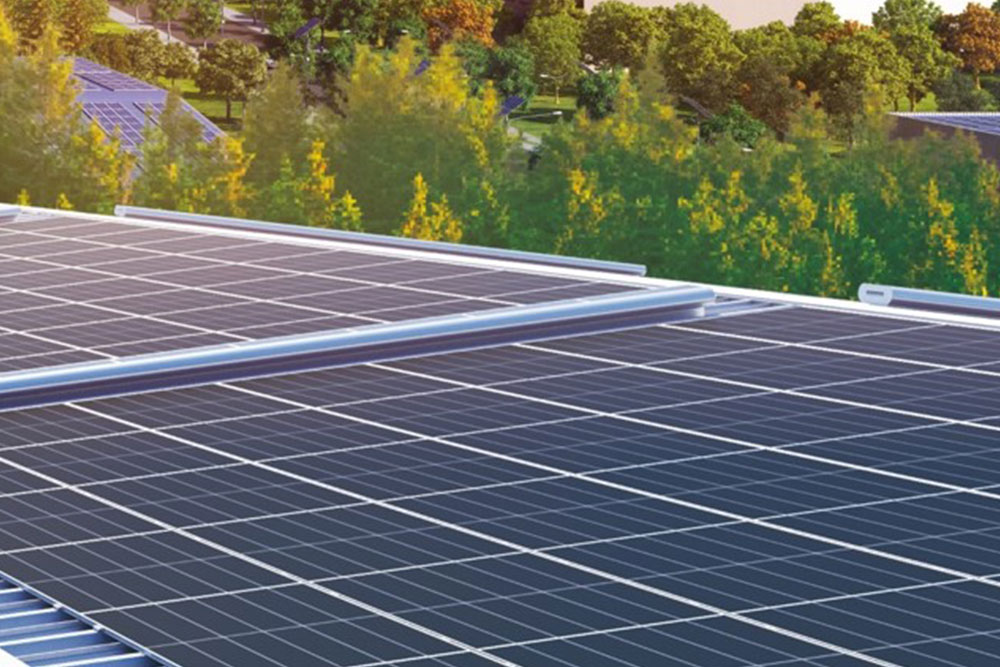太陽能光伏發電有什么好處和壞處?
好處
good
可再生能源:太陽能是一種可再生能源,取之不盡、用之不竭,不會像傳統能源那樣面臨枯竭的問題。只要太陽存在,就可以持續利用太陽能進行發電。
Renewable energy: Solar energy is a renewable energy source that is inexhaustible and will not face the problem of depletion like traditional energy sources. As long as the sun exists, solar energy can be continuously used for power generation.
清潔環保:在光伏發電過程中,不會產生溫室氣體排放,也不會產生污染物,對環境非常友好,有助于減少對環境的污染和氣候變化的影響。
Clean and environmentally friendly: In the process of photovoltaic power generation, there will be no greenhouse gas emissions or pollutants, making it very environmentally friendly and helping to reduce pollution and the impact of climate change.
分布廣泛:太陽能資源分布廣泛,無論是陸地還是海洋,都有豐富的太陽能可供利用。特別是在一些偏遠地區、海島等,太陽能光伏發電可以為當地提供獨立的電力供應,解決供電困難的問題。
Widely distributed: Solar energy resources are widely distributed, with abundant solar energy available for use on both land and sea. Especially in some remote areas, islands, etc., solar photovoltaic power generation can provide independent power supply for the local area, solving the problem of power supply difficulties.
維護成本低:太陽能光伏發電系統的運行相對簡單,沒有復雜的機械傳動部件,因此維護成本較低。一般只需要定期進行清潔和檢查,確保光伏板的正常運行即可。
Low maintenance cost: The operation of solar photovoltaic power generation systems is relatively simple, without complex mechanical transmission components, resulting in lower maintenance costs. Generally, regular cleaning and inspection are only necessary to ensure the normal operation of the photovoltaic panels.

能源安全:發展太陽能光伏發電可以減少對進口能源的依賴,提高一個國家或地區的能源自給率,增強能源安全。同時,分布式的太陽能發電系統也可以在一定程度上分散能源供應風險,避免因集中式能源供應系統出現故障而導致大面積停電。
Energy Security: Developing solar photovoltaic power generation can reduce dependence on imported energy, improve a country or region's energy self-sufficiency rate, and enhance energy security. Meanwhile, distributed solar power generation systems can also to some extent diversify energy supply risks and avoid large-scale power outages caused by failures in centralized energy supply systems.
壞處
disadvantage
能量密度低:太陽能的能量密度相對較低,要獲得一定規模的電力,需要較大面積的光伏板來收集太陽能。這意味著在土地資源緊張的地區,可能會面臨安裝空間不足的問題。
Low energy density: The energy density of solar energy is relatively low, and to obtain a certain scale of electricity, a large area of photovoltaic panels is needed to collect solar energy. This means that in areas with scarce land resources, there may be a problem of insufficient installation space.
間歇性強:太陽能光伏發電依賴于日照條件,只有在白天有陽光時才能發電,且陰天、雨天等天氣條件會影響發電效率。因此,太陽能發電具有間歇性和不穩定性,需要與其他能源或儲能系統配合使用,以確保電力的穩定供應。
Intermittent strong: Solar photovoltaic power generation relies on sunlight conditions and can only generate electricity when there is sunlight during the day, and weather conditions such as cloudy and rainy days can affect power generation efficiency. Therefore, solar power generation has intermittency and instability, and needs to be used in conjunction with other energy sources or energy storage systems to ensure a stable supply of electricity.
本文由太陽能光伏發電友情奉獻.更多有關的知識請點擊:http://www.51dwgw.cn我們將會對您提出的疑問進行詳細的解答,歡迎您登錄網站留言.
This article is dedicated to friendship For more information, please click: We will provide detailed answers to your questions. You are welcome to log in to our website and leave a message
新聞推薦
product recommendation聯系方式
Contact Information

 TEL:0531-82390078
TEL:0531-82390078 TEL:18805312017
TEL:18805312017 MAI:sdzdny001@163.com
MAI:sdzdny001@163.com 公司地址: 濟南市歷下區山大路157號
公司地址: 濟南市歷下區山大路157號 天合藍天·山東種電
天合藍天·山東種電 備案號:魯ICP備17052940號-2
魯公網安備37010202700164號
備案號:魯ICP備17052940號-2
魯公網安備37010202700164號
 網站地圖|XML|TXT
網站地圖|XML|TXT

掃一掃方便咨詢我們

截屏,微信識別二維碼
微信號:18805312017